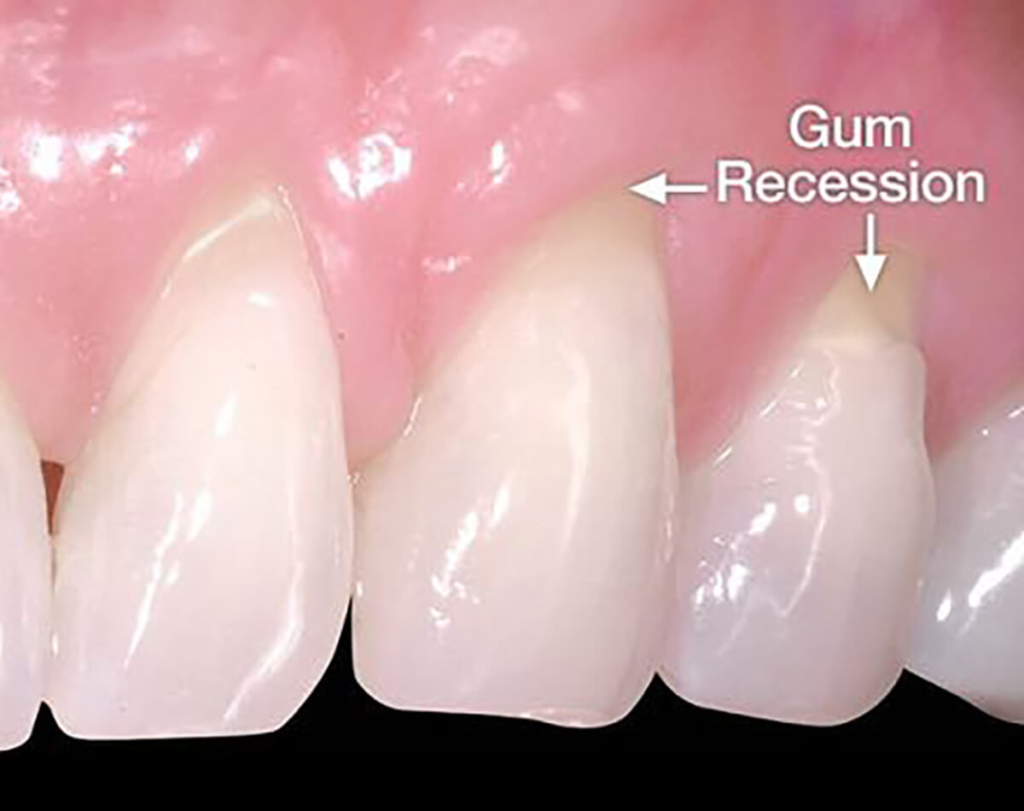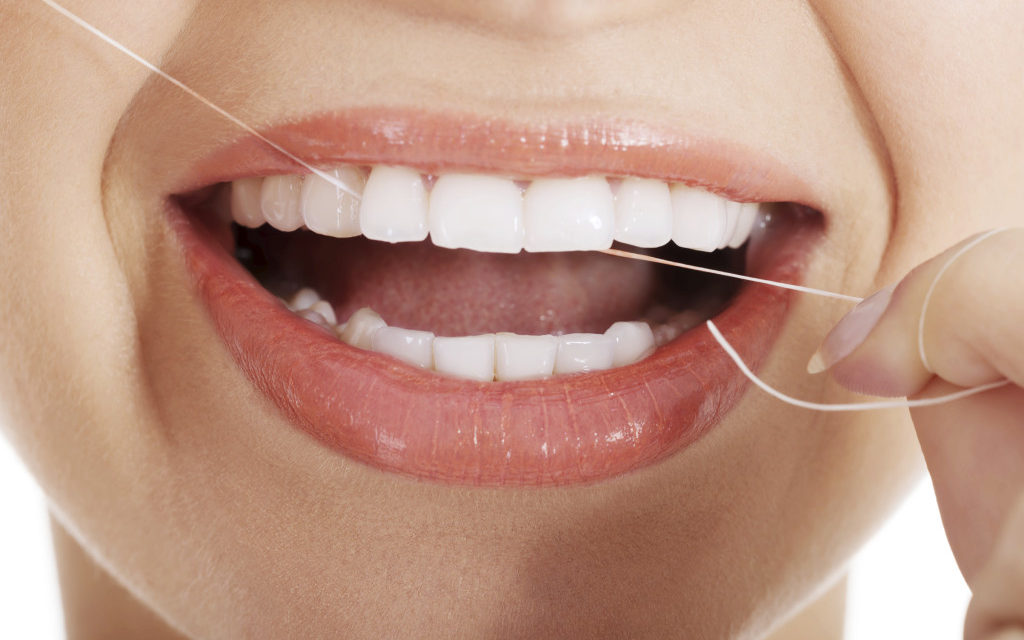Receding gums is a condition that affects millions of people worldwide. It occurs when the gum tissue surrounding the teeth starts to pull away, exposing the tooth’s root and leading to discomfort, sensitivity, and even tooth loss. While receding gums can be caused by several factors, such as genetics, poor oral hygiene, and age, it is essential to address this issue promptly to prevent further damage. Fortunately, there are various ways to regrow receding gums at home.
This article aims to provide comprehensive knowledge about regrowing receding gums at home using natural remedies and lifestyle changes. We will discuss how gum recession occurs and explore ways to prevent it from happening or worsening. Whether you’re experiencing mild or severe gum recession, this article will equip you with useful information on taking care of your oral health in the comfort of your home.

Understanding Receding Gums
Gingival recession, characterized by the progressive displacement of the gingival margin from its original position on the tooth surface towards the root, has become an increasingly prevalent oral health concern. This condition often goes unnoticed in its early stages but can lead to serious dental complications if left untreated. Causes and symptoms of receding gums are varied and range from poor oral hygiene practices to genetic predisposition.
Early detection is critical in addressing receding gums as it enables individuals to take preventative measures before irreversible damage occurs. Some common signs and symptoms include tooth sensitivity, tooth decay, swollen or bleeding gums, bad breath, and pain while chewing. If you notice any of these symptoms or experience discomfort around your teeth or gums, it’s important to consult your dentist immediately.
Without prompt intervention, gum recession can cause significant damage to your teeth and surrounding tissues. In addition to affecting your oral health, receding gums can also impact your overall well-being by increasing your risk for infections and other medical conditions. By understanding the causes and symptoms of this condition and seeking early treatment when necessary, you can easily regrow receding gums at home while maintaining optimal dental health.

Maintaining Good Oral Hygiene
Maintaining good oral hygiene is an essential aspect of overall health and well-being. Effective oral hygiene practices include brushing and flossing techniques, as well as the use of Mouthwash. Proper brushing and flossing help remove plaque buildup, while Mouthwash can help kill bacteria and freshen breath.
Brushing And Flossing Techniques
Effective oral hygiene practices involve brushing and flossing techniques to promote optimal gum health. Brushing your teeth regularly is essential to maintaining good oral health, but brushing properly is equally important. To achieve maximum benefits: Use a soft-bristled toothbrush with a small head that can reach all areas of your mouth. Hold the brush at a 45-degree angle against your gums and gently move it back and forth in circular motions. Brush each tooth for at least two minutes twice daily, especially after meals or snacks.
Flossing is another crucial aspect of oral care that shouldn’t be overlooked. Flossing helps remove food particles and plaque that may have accumulated between the teeth and gum line, which can lead to cavities or gum disease if left untreated. Proper flossing techniques include: Using about 18 inches of dental floss wrapped around your fingers. Guiding it gently between your teeth with a zig-zag motion. Curving the floss around the base of each tooth in the shape of a “C.” Sliding it up and down several times while careful not to snap or force it into place. Incorporating these simple yet effective brushing and flossing techniques into your daily routine can go a long way toward keeping your gums healthy and preventing oral problems.

Using Mouthwash
Incorporating Mouthwash into your oral hygiene routine can provide additional benefits in promoting optimal gum health. Mouthwash helps to kill bacteria and freshen breath, but it also has the added benefit of reducing plaque buildup and preventing gingivitis. Gingivitis is a common cause of receding gums, so using Mouthwash regularly can help prevent this condition.
There are several mouthwash types, including fluoride, antiseptic, and natural options. Fluoride mouthwash contains fluoride, which strengthens tooth enamel and protects against cavities. Antiseptic mouthwashes contain ingredients such as chlorhexidine or essential oils that kill bacteria and reduce inflammation in the gums. Natural mouthwashes contain herbal extracts such as tea tree oil or aloe vera, which have anti-inflammatory properties. Choosing a mouthwash that suits your needs and preferences for taste and texture is important. Incorporating regular use of Mouthwash into your oral hygiene routine, along with proper brushing techniques and flossing, can aid in regrowing receding gums at home.

Eating A Healthy Diet
Consuming nutrient-dense foods rich in vitamins and minerals can support gum health and prevent further deterioration. A diet that includes fruits, vegetables, whole grains, lean proteins, and low-fat dairy products can provide the body with essential nutrients for healthy gums. Healthy meal planning plays a critical role in maintaining optimal oral health.
Nutritional vitamin C, D, and calcium supplements can also benefit gum health. Vitamin C helps strengthen the gums’ connective tissue, while vitamin D aids in calcium absorption to promote strong bones. Calcium is essential for building strong teeth and preventing tooth decay. However, it’s crucial to consult with a healthcare professional before incorporating any new nutritional supplements into your daily routine.
Maintaining a healthy diet benefits your overall health and plays an essential role in keeping your gums healthy. It’s important to limit sugary snacks and beverages that can contribute to tooth decay and gum disease. By consuming a well-balanced diet rich in nutrients, you’ll take proactive steps towards regrowing receding gums at home naturally without invasive intervention or treatment options.

Using Natural Remedies To Regrow Receding Gums At Home
A healthy diet is crucial for good oral health. By consuming a balanced diet, individuals can ensure that their gums receive the necessary nutrients to remain healthy and strong. However, there are natural remedies available that can further assist in promoting gum growth.
Herbal remedies have been used for centuries to treat various ailments, including dental. Sage and peppermint are two herbs renowned for their anti-inflammatory properties that may reduce swelling and promote the healing of receding gums. Aloe vera gel has also been effective in reducing inflammation, promoting tissue repair, and preventing the growth of harmful bacteria in the mouth.
Another popular natural remedy is oil pulling. This technique involves swishing oil (such as coconut or sesame) around the mouth for 15-20 minutes before spitting it out. Oil pulling has been shown to reduce plaque buildup and improve oral health by eliminating harmful bacteria from the mouth.
Incorporating herbal remedies and oil into one’s daily routine may help promote gum growth naturally. However, it is important to note that these remedies should not replace proper dental care practices, such as brushing twice daily with fluoride toothpaste and flossing regularly. Consultation with a dentist may also be necessary if gum recession persists or worsens despite at-home remedies being implemented regularly.
Practicing Gum Massage
Gum massage, a technique used to stimulate blood flow and promote tissue regeneration in the gums, has been shown to be an effective natural remedy for improving oral health. This alternative therapy can help alleviate symptoms of receding gums, such as sensitivity and inflammation. Here are three benefits of practicing gum massage:
- Reduces risk of gum disease: Gum massage helps increase blood circulation in the gums, leading to better oxygen supply and removal of toxins from the tissues. This reduces the risk of gum disease by promoting healthier and stronger gums.
- Improves oral hygiene: Massaging your gums regularly can remove food particles stuck between teeth and along the gum line. This helps improve your overall oral hygiene while reducing plaque formation.
- Relieves stress: Gum massage benefits your oral health and relaxes your mind and body. It is believed to relieve stress by activating pressure points in the mouth that correspond with different body parts.
To effectively practice gum massage, there are several techniques you can use. One method involves using a soft-bristled toothbrush or index finger to gently rub your gums in circular motions for two minutes. Another approach involves pressing down on specific points along your gum line with a wooden stick or rubber tip.
Incorporating regular gum massages into your dental routine can lead to significant improvements in both oral health and overall well-being. By utilizing these simple techniques, you can take control of receding gums and promote healthy tissue regeneration for improved quality of life without resorting to expensive surgeries or invasive treatments.
Avoiding Tobacco Products
Gum massage is one way to promote good oral health and potentially prevent receding gums. However, it’s important to note that lifestyle choices can also significantly impact your gums’ health. One such choice is quitting smoking and avoiding smokeless tobacco products.
Tobacco use is a major risk factor for gum disease, which can contribute to receding gums. In addition, tobacco use is a leading cause of oral cancer. Quitting smoking and avoiding smokeless tobacco products can greatly reduce your risk of developing these conditions. Nicotine replacement therapy and support groups for quitting can be helpful resources.
In addition to quitting smoking, maintaining regular dental cleanings and exams can help identify any potential issues with your gums early on. Good oral hygiene habits at home, such as brushing twice daily and flossing regularly, is also important for gum health. Healthy lifestyle choices, such as eating a balanced diet and getting enough exercise, can further support good oral health. Additionally, using specific oral hygiene products designed for smokers may help reduce the negative effects of tobacco use on the mouth. It’s also important to limit exposure to secondhand smoke whenever possible to protect your health and those around you.

Seeking Professional Treatment
Professional treatment options for receding gums include scaling, root planing, and gum graft surgery. Scaling and root planing involve removing plaque and tartar from the teeth and smoothing the roots to prevent further damage to the gums. Gum graft surgery involves tissue from another part of the mouth and attaching it to the affected area to cover exposed roots and restore gum tissue.
Scaling And Root Planing
Scaling and root planing, a non-surgical periodontal therapy, involves removing the plaque and calculus accumulated on the surface of the teeth and roots to prevent the further progression of gum disease. A dental professional does deep cleaning through scaling and root planing, which is done in two phases. During scaling, tartar buildup is removed from above and below the gum line using special instruments. Root planing follows next, where rough spots on tooth roots are smoothed out to eliminate bacteria that cause inflammation.
Gum recession causes include poor oral hygiene, tobacco use, grinding or clenching teeth, hormonal changes, and genetics. Scaling and root planing can help treat gum recession caused by bacterial infection. Removing plaque buildup from the gums and teeth surfaces during deep cleaning sessions before periodontitis sets in helps prevent or slow down the progression of gum disease leading to receding gums. Regular visits to a dentist for deep cleaning, complemented with proper daily oral hygiene practices such as brushing twice daily with fluoride toothpaste and flossing, can prevent further recession of gums at home.

Gum Graft Surgery
Gum graft surgery is a periodontal procedure that aims to restore the gum tissue by covering the exposed tooth roots. During this procedure, the dentist will remove a small amount of tissue from the roof of the patient’s mouth or use donor tissue to attach it to the affected area. This surgery aims to protect exposed tooth roots from further damage and prevent tooth decay or loss.
While gum graft surgery is an effective treatment option, some patients may hesitate due to fear of pain or discomfort during recovery. Fortunately, alternative treatments such as platelet-rich plasma therapy or guided tissue regeneration can achieve similar results without invasive surgery. Additionally, following proper post-operative care instructions, such as maintaining good oral hygiene and avoiding hard foods, can help speed recovery and reduce discomfort after gum graft surgery.

Preventing Receding Gums
Preventing receding gums is crucial to maintaining good oral health. Regular dental checkups enable early detection of gum recession and allow for timely intervention to prevent further damage. Continuing good oral hygiene practices such as brushing twice daily, flossing daily, and using an antiseptic mouthwash can also help prevent gum recession by removing plaque buildup that can lead to periodontal disease.
Regular Dental Checkups
Routine dental checkups are crucial in maintaining optimal oral health and preventing further damage to the teeth and gums. The importance of scheduling regular dental checkups cannot be overstated, as it helps detect any early signs of gum disease or tooth decay that can lead to receding gums.
To ensure you get the most out of your dental appointments, here are four things to keep in mind when finding the right dentist:
- Look for a dentist with experience in treating gum disease.
- Consider their availability and location to make scheduling easier.
- Check their credentials and certifications to ensure they are qualified to treat your oral health needs.
- Read reviews from other patients or ask for recommendations from friends and family members who have had positive experiences with their dentists.
By prioritizing regular dental checkups and finding the right dentist, you can take proactive steps toward preventing receding gums and maintaining good oral health overall.

Continuing Good Oral Hygiene Practices
Maintaining good oral hygiene practices is crucial to preventing further damage to teeth and gums, which can be achieved through consistency and incorporating proper techniques. Consistency in brushing twice daily for at least two minutes with fluoride toothpaste and flossing daily can help remove plaque buildup that can lead to gum disease. Also, Mouthwash can help kill bacteria that cause bad breath and prevent cavities.
Incorporating proper techniques when brushing and flossing is equally important as consistency. Using gentle circular motions while brushing help remove plaque without damaging the gums. While holding the floss tightly against the tooth and gently sliding it up and down removes food particles between teeth that a brush cannot reach. It is also important to replace your toothbrush every three to four months or sooner if bristles become frayed and use an ADA-approved mouthwash to ensure maximum effectiveness. Regularly following these practices can maintain good oral health and prevent further damage to their teeth and gums.

Frequently Asked Questions
Can Receding Gums Be Reversed Completely Through Home Remedies, Or Should I Seek Professional Treatment?
Various factors, including gum disease, genetics, and poor dental hygiene, can cause receding gums. Prevention is key to maintaining healthy gums, including regular brushing and flossing and routine dental checkups. If receding gums are already present, seeking professional treatment from a dentist or periodontist may be necessary to fully reverse the condition. Home remedies such as oil pulling and natural toothpaste may provide some relief and prevention measures, but they cannot completely reverse receding gums. It is important to consult a dental professional to determine the best course of action for receding gums.
How Long Does It Take To See Results From Natural Remedies For Regrowing Receding Gums?
The timeline for seeing results from natural remedies for regrowing receding gums can vary depending on the individual and the specific remedy used. Some people may see improvement within a few weeks, while others may take several months to notice any changes. It is important to note that natural remedies may be less effective than professional treatments such as gum grafting, scaling, and root planing. Comparisons between the effectiveness of natural remedies and professional treatments have shown mixed results, with some studies suggesting that professional treatments are more effective in reversing gum recession. However, natural remedies can still be viable for those who prefer a non-invasive approach or cannot afford professional treatment.
Are Any Specific Foods Or Supplements Effectively Preventing Or Regrowing Receding Gums?
Several foods and supplements are effective in preventing or regrowing receding gums. Foods rich in vitamin C, such as papaya, kiwi, strawberries, and oranges, can help strengthen the connective tissue that holds teeth in place and prevent gum disease. Supplements like Coenzyme Q10 (CoQ10) and Omega-3 fatty acids have also shown promising results in promoting gum health. However, it is important to note that natural remedies may take longer to show results compared to clinical treatments such as scaling and root planing or gum graft surgery. It is recommended to consult with a dental professional before attempting any treatment approach for receding gums.
Can I Prevent Receding Gums From Worsening Even If I Cannot Regrow Them Completely?
Preventive measures and lifestyle changes can help prevent receding gums from worsening, even if complete regrowth is impossible. Regular dental checkups and cleanings can identify early signs of gum disease, allowing for prompt treatment to prevent further damage. Maintaining good oral hygiene habits, such as brushing twice daily with fluoride toothpaste and flossing daily, can also help prevent gum disease. Additionally, avoiding tobacco products and reducing sugary or acidic foods and drinks in the diet can promote overall oral health and potentially slow the progression of receding gums. While these measures may not lead to the complete regrowth of receding gums at home, they are important steps to minimize further damage and promote overall oral health.
Can Using Certain Toothpaste Or Mouthwashes Contribute To Receding Gums, And What Should I Look For In Oral Care Products To Prevent This?
Toothpaste and Mouthwash are essential for oral care, but certain ingredients can contribute to receding gums. Toothpaste that contains harsh abrasives or chemicals like sodium lauryl sulfate can irritate the gums and cause them to recede over time. Similarly, alcohol-based mouthwashes can dry out the mouth and lead to gum recession. To prevent this, it is important to look for toothpaste and mouthwashes that are gentle on the gums and do not contain these harmful ingredients. Regular dental checkups with a dentist can help identify any early signs of gum recession and prevent it from worsening. Individuals can reduce their risk of developing receding gums and other dental problems by taking proactive steps toward maintaining good oral hygiene practices.
Conclusion
Receding gums can be a significant oral health concern that should not be ignored. Understanding the underlying causes and implementing practical steps to prevent further damage is essential for overall well-being. Maintaining good oral hygiene, eating healthy foods, and using natural remedies are effective ways to regrow receding gums at home.
Gum massage is another simple method that can help stimulate blood flow and promote tissue regeneration in the affected areas. Avoiding tobacco products is also crucial, as they can exacerbate gum recession by damaging the delicate tissues in the mouth. Seeking professional treatment from a dentist or periodontist may be necessary for advanced cases of gum recession.
By following these preventative measures, individuals can take control of their oral health and potentially regrow gums at home. It is important to remember that early detection and intervention are key in preventing further damage and maintaining healthy teeth and gums throughout life.



